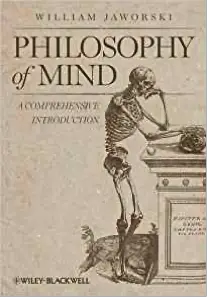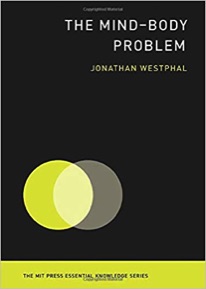The Science of Consciousness:
Chapter 2: The Mind-Body Problem
What this chapter is about: What is the relationship between the physial brain and mental mind?
How can mass of millions of neurons made out of molecules of matter give rise to the mind and subjective experience? This chapter focuses on the philosophical issues involved. The chapter raises what for me are the the most important and interesting issues in consciousness research, ones which psychology and neuroscience then try and address - but how successful are they at giving a complete answer?
I give you my beautiful sunrise on the left, and ask how satisfied are you with science's explanation of how and why we react to it.
Another thought experiment
In Kaku's excellent and provocative "Physics of the future" (see my comments in Chapter 4) he writes "But who will clone a human? ... more likely, a wealthy, elderly man on his deathbed who has no heirs ... and wants to will all his money to himself as a child, in order to start all over again" (p. 131). Would they? Would you? I think this belief places too much emphasis on genes and not enough on environment. However much you try, a mini-me with the same genes but different background will turn out to be very different. But also it implies that consciousness is something that can be shared, and that if we could find somebody who was just the same, we would have the same consciousness. Think back to the teleporter paradox described in this chapter. As soon as the body splits, the mind splits too. Consciousness is essentially private.
The mind of a worm
p. 46-51. I describe how we have a complete neural map, a connectome, of the roundworm Caenorhabditis elegans. But what does this connectome tell us? Suppose we had a complete neural map of you. Is that sufficient to capture you? We're not described simply by the way our neurons are connected to each other because at any one time neurons will be in different states of activation and the neurons and interneuronal gaps will contain variable amounts of neurotransmitters. This feature is just as important and complex as the wirng map. But suppose we could capture all of this complexity, neural map, neural transmitters, wiring map. We might be able to work out what you're thinking about any one moment, but would it tell us anything about how you feel - what you're experiencing? I think not.
Links to useful web pages about the mind-body problem
The Stanford Encyclopedia of Philosopy. The first stop for information on the philosophy and philosophers of mind (as well as the rest of philosophy). Entries are longer, more detailed, more technical, and considered more reliable than Wikipedia. Entries are edited. "Friends" can download very smart formatted PDFs for a very reasonable fee. Entries are occasionally updated.
David Chalmers' pages. Material about David Chalmers, his work, and the philosophy of mind in general.
The teleportation paradox
I must admit to not being completely sure I understand the problem. Here is one version of it. You have probably seen transporters in action in Star Trek: they disassemble matter in one location, convert it into energy, and beaming it to another location, where it is reassembled into the original pattern. I'm being deliberately vague about what "it" refers to here: presumably enough energy to create matter, and the infomation about how it should be arranged. Now the first thing to observe is that in the transporter model what matters for consciousness is simply the arrangement of matter; there is no scope for a soul. So far, so good. There are many possible ways in which the transporter could go wrong, and perhaps the simplest is that a malfunction leaves the original me intact at the starting location while a duplicate me is created as normal at the target location. Which is the real me? It's at this point I don't see a problem: there are now two "me"s. Each will experience the world differently, and from the moment both are created (or the original and a duplicate), their experiences and identitues will start to diverge.
Reductionism
Here is a quote that sums up materialism and reductionism for me:
"Everything is made up of atoms. That is the key hypothesis. The most important hypothesis in all of biology, for example, is that everything that animals do, atoms do. In other words, there is nothing that living things do that cannot be understood from the point of view that they are made of atoms according to the laws of physics".
Nothing, including being conscious.
From the excellent The Physical Basis of Chemistry, W.S. Warren (2000). New York: Academic Press.
Further reading
Westphal, Jonathan. (2016). The mind-body problem. Cambridge, MA: MIT Press. No Kindle version available. ISBN: 978-0262529563.
Three quarters of this book is superb, and overall it is the best introduction to the mind-body problem that I've read. The first thing to note is that the mind-body problem is more general than the problem of consciousness in that it concerns all issues to do with how the mind and body are related, not just how awareness arises.
Westphal summarises the mind-body problem very nicely with the following tetrad of propositions, each of which seems plausible and correct.
1. The mind is a non-physical thing.
2. The body is a physical thing.
3. The mind and body interact.
4. Physical and non-physical things cannot interact.
Clearly these cannot all be true! There is an inconsistency somewhere. How we resolve the inconsistency demonstrates our attitude to the mind -body problem. For example, if we think (1) is incorrect, and that the mind is a physical thing, we are physicalists. Eliminative materialists also think (1) is wrong, but because there is no such thing as a mind. An idealist denies (2). A substance dualist thinks there is an account that denies or bypasses (4).
Westphal is particularly clear in his discussion of physicalism and its problems. He takes all the main variants of physicalism and points out each of their failings. He is also good at taking the cognitive models of consciousness (see my chapter 8), all of which are ultimately physicalist, and pointing out what is wrong with them, and especially how they fail to address the real difficulties of consciousness and the mind-body problem, although of course the authors involved all claim they do. Simply, all these theories don't really give an account of qualia, in spite of claiming to do so. (The same is true of quantum mechanical models.)
Where Westphal is less good is at explaining his preferred solution to the mind-body problem, neutral monism, the idea that there is only one type of substance, but this substance is neither mind nor matter (hence the adjective "neutral"). This failing isn't wholly Westphal's: no neutral monist has come up with a widely accepted account of what the neutral elements are (neutral monists may disagree), although Westphal says they are "very similar to qualia". Instead we get analogies: a left glove and a right glove (physical things) is different from a pair of gloves (non-physical); and all of the colleges of Oxford are different from the University of Oxford. I also admit to not understanding fully the difference between neutral monism and property dualism.
The mysterians argue that the mind-body problem as summarised in the above tetrad is not soluble because our minds are not equipped to comprehend it. My dog Beau just does not have the mental abilities necessary to understand the theory of relativity; we are the same with the mind-body problem. I am not quite so pessimistic. My suspicion is that the problem lies with our understanding of the word "mind". Mind is another thing that we all assume that we know what it is, but is difficult to define, particularly without going round in circles. Westphal doesn't define it, and it's not in his glossary or index.
Jaworski, William. (2011). The Philosophy of Mind: A Comprehensive Introduction. Wiley-Blackwell. Kindle version available. ISBN: 978-1444333688.
There are several books with a variant of this title. What attracted to me to this one was the promise in its publisher's description that it is "written in a clear, easy to read style that is free of technical jargon, and highly accessible to a broad readership". Well, it isn't. It isn't a bad book, but it doesn't stand out from all the other philosophy texts on the philosophy of mind. I was looking for a book I could recommend to a psychology or computer science undergraduate that they could read and get a good understanding of the basic issues. This book is aimed, or appears to be aimed, at philosophy undergraduates who already know something. I'm still searching for the perfect introduction. As well as the argument being difficult to follow, or perhaps expressed too quickly, it isn't at all free of technical jargon.
My second gripe is that the jargon isn't always standard. The author prefers some non-standard phrases, which he might technically be correct, will confuse students. Forgoing property dualism is one example.
My third complaint is that he makes no effort to be neutral, preferring a theory of mind called hylomorphism. I hadn't heard of it either, and some space is devoted to it that might have been spent for an introduction.
Finally, as with all these books, it looks dull and unfriendly. Why can't publishers be a little bit imaginative with presenting philosophy texts?
It's not a bad book, and certainly no worse than its competitors, but given the promises I was disappointed. It's also available for Kindle, unlike many of these books. My main complaint is that in spite of the title it is no introduction. My plan is to read it again in a year or so and see if I get anything more from it.

